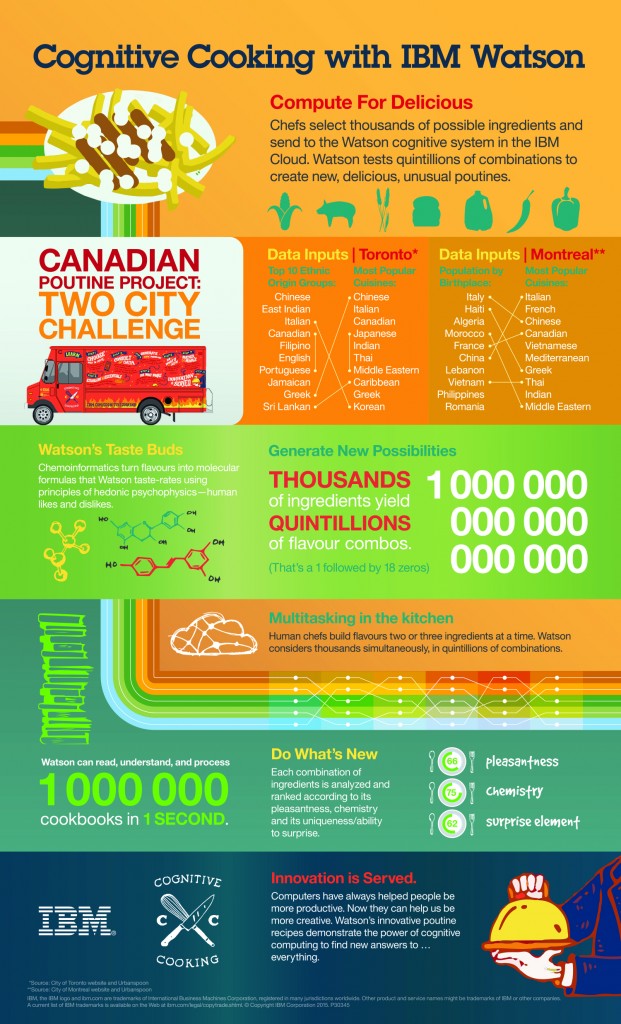A computer called Watson, knows what food your body needs better than you, and can recommend surprising and delicious flavor pairings unimagined by the world’s most famous chefs.
That is the power of “cognitive computing”, — computer systems that can ingest and reason about vast quantities of information as well as learn and interact naturally with people. IBM Watson represents a new era in computing history, where systems that learn, as opposed to being programmed, will enable a new partnership between humans and computers that will enhance and scale human expertise. These include advances in the diagnosis and treatment of disease, the management of impossibly complex financial, telecommunications and energy systems, and even deciding what you should have for dinner.
Now, to further demonstrate the power of cognitive computing, IBM has recently launched a quintessentially Canadian project – reinventing poutine.
To kick it off, Watson has analyzed countless ingredients at the molecular level, comparing quintillions of combinations and cross-referencing what is known about human preferences to help chefs devise unique poutine recipes – five for Toronto and five for Montreal. The public is invited to try them and vote online for their favourite from each city, at ibm.com/cognitivecooking/ca
Cognitive cooking is a great way to demonstrate the incredible power of Watson technology, IBM points out. This cognitive computer system responds to natural-language questions, sifting through unimaginable oceans of data in any form. One example is locating symptoms from text books, databases, test results, or physician’s notes to help doctors make a diagnosis faster and find the most effective treatment for an individual. Watson assesses all possibilities and responds in plain language with the best option.
In the world of food, the world’s best chefs know a few dozen taste combinations that might work well together. Watson looks at a multiplicity of conceivable ingredient combinations, at a molecular level, to find complimentary flavours. A human chef might never consider mushrooms and strawberries, which share similarities on the molecular level, as compatible, but Watson knows. Its earlier kitchen creations such as ceviche fish and chips, Vietnamese apple kebabs, and Azerbaijani Saffron Cake, with cherry plum, pistachio and cloves, have already got rave reviews.
Creative cooking may seem an unconventional task for one of the world’s most powerful analytical technologies, but along with demonstrating Watson’s abilities, cognitive cooking will also be used to promote and maintain individual health. As it is more widely adapted, personalized applications will make recommendations based on an individual’s specific medical needs (like calorie reduction, insulin control, cholesterol control, etc.) and flavour preferences. School and hospital meals can be optimized, to make vegetable and other healthful combinations that are as appealing as desserts. Eating healthy has never tasted so good.
www.newscanada.com


Leave a Reply